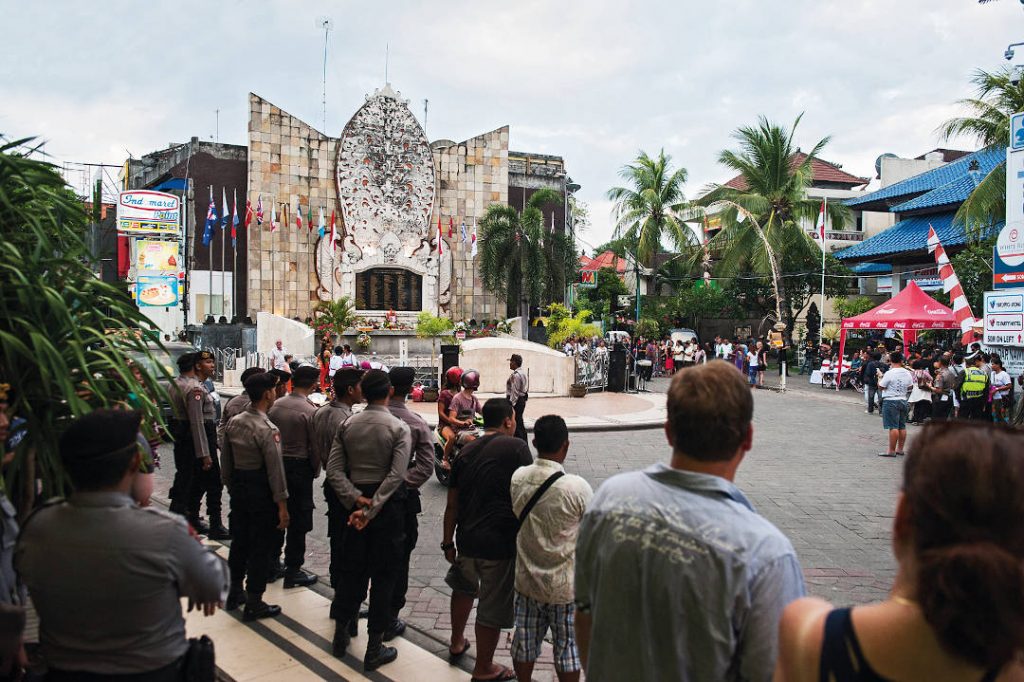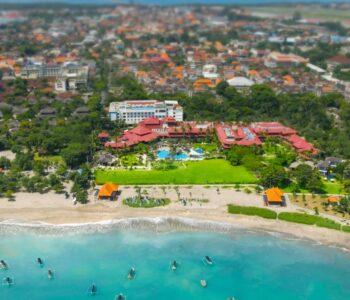Some background and some ideas from Alistair Speirs OBE, Managing Director of Phoenix Communications, who has spent many years in Post-crisis action and wants to make sure we do better this time around.
The crisis will end. They all do. And usually precipitate another because our ability to recover is pretty much equal to our ability to plan, says Alistair Speirs who has seen his weary way through many crises in Indonesia: from riots to earthquakes, from financial collapses to tsunamis. And if we are truly honest and compare our recovery time and our recovery programs to our neighbours in Singapore, Malaysia and Thailand, we will see we are very much slower than they are. Why is this and what can be done this time to make recovery quicker and easier – and more permanent!
Indonesian translation available here.
Audio Version:
In 1907, Baden-Powell, an English soldier, devised the Scout motto:
Be Prepared. He published it in Scouting for Boys in 1908. (Two years later, in 1910, the Boy Scouts of America was founded.)
In Scouting for Boys, Baden-Powell wrote that to Be Prepared means “you are always in a state of readiness in mind and body to do your duty.” Upon hearing the Scout motto, someone asked Baden-Powell the inevitable follow-up question.
“Prepared for what?”
“Why, for any old thing,” he replied.
More than a century later, preparedness is still a cornerstone of Scouting. Through its fun, values-based program, Scouting prepares young people for life.
In the late 1900s, Baden-Powell wanted young people equipped to react quickly to an emergency. The Great War loomed, and soon the Boy Scouts — not a military organization but a service-minded one — would be called upon to play their part.

His idea was that Scouts should prepare themselves to become productive citizens and strong leaders and to bring joy to other people. He wanted each Scout to be ready in mind and body and to meet with a strong heart whatever challenges await him.
Isn’t that what we need now? We need to be prepared. What for? Well as Baden –Powell said” any old thing “ and let me say it – every new thing .
Failing to prepare, as we all know , is preparing to fail, and as an ex-member of the insurance business , I know only too well how very unprepared people are for disasters and emergencies. The horror of the ‘it will never happen to me’ mentality keeps insurers awake at night, as sprinklers are never checked and safety procedures and regular maintenance, even of passenger lifts, and more astonishingly , planes, buses and trains are often neglected.
Of course the actual frequency of occurrence is quite minimal, which is what lulls people into their state of delusion and false security. Sometimes insurers long for a good fire to wake everyone up (as long as no one is hurt of course) But here in Indonesia we really have no reason for complacency, we are under constant attack, from natural and man-made disasters, and every time we have to start again, from the bottom, to build ourselves up.
Do you remember the earthquake that devastated Jogja in 2006 killing more that 5,000 people? One year after that I was asked to revisit the tourism industry and find out how they were recovering. In a meeting of over 50 industry leaders I asked them to show me their updated Crisis Management Plans. Not one had done it . I was not nice to them. They were letting their staff, their guests and their community down. They were unprepared, again.
If we cannot learn from disaster and at the very least have a Crisis Management Plan in place and all aspects of it regularly updated and checked, we deserve all we get . A sad indictment – but not the worst.
You all of course remember the Bali Bombings which devastated the tourism industry in 2002. The Government promised a dedicated recovery fund to get the island back on its feet, which was desperately needed with hotels , restaurants and shops empty for 3-4 months, and families literally living hand-to-mouth. It took 7 months to get the fund and the recovery program in place. Then it took 6 months to set up a proper PR communications program to try to get the world to “Come back to Bali “. It worked but it could have saved thousands of jobs and months of anguish if it had been done immediately or better still – prepared in advance , in anticipation, of the many things that can and do go wrong.

Fast forward to 2018 when Mt Agung started blowing its top. The tourist markets reacted with alarm and cancellations started flooding in. Even though there was no real danger.What was needed was an immediate, reasoned , professional response from the Official Tourism PR Department to reassure everyone and preserve the inbound tourists and thereby Balinese jobs. But no, there was no PR Dept , that had been disbanded when it was no longer needed. Along with maintenance, crisis management and the whole concept of forward planning I guess.
In Jakarta we had floods this year, again – um, why? According to the official spokesperson , it was because of unusually heavy rain . Well I could have told you that! But I would have been fired from my insurance job for not anticipating that and advising my clients to look at the 100 year worst case scenario, add 50 percent to it and make the infrastructure suitable to handle that level. People lost their homes and some their lives because there was no preparation. Baden–Powell would have been furious.
So here we are today , trying to cope with a brand new threat, wait a minute , it’s not brand new, it’s SARS and MERS and Bird Flu revisited! What did we do then, anyone remember? Where is the SARS plan? Oh, filed away with the PR and maintenance programs. Where is the post SARS plan? There wasn’t one? Then that’s what we will do again .
But it should not be. We need to be ready , to take action to minimise human suffering and economic consequences. We need new ideas, new solutions, new initiatives, however crazy, to get the country back working , and giving money to local governments to disburse at their pleasure is not the way. (Ask the people of North Lombok who are still, two years later, waiting for their recovery program to be completed).
So what should we do?
Lets look at the crucial tourism sector on which millions are dependent for their livelihoods , directly or indirectly, and which can be the key to kick starting the economy if we handle it correctly.
Here are my suggestions which would need to be put in place NOW, while the pandemic is still running its course, not waiting till it’s over as we have seen explained above.
(1) If you remember the travel industry response to the Bali bombings, the hotels and apartments responded by installing body scanners and x-ray machines as did some major clubs , restaurants and other businesses.
This, combined with other security and safety practices, had an immediate calming effect on worried customers, showing that the industry had effectively self-regulated to the satisfaction of the travel industry.
So we need to do this again –and create a series of post-covid regulations that will satisfy the most anxious corporate or leisure traveler. This can be worked on by the industry bodies immediately and reach consensus quickly, and put in place for all hotels and other public venues well in advance of the green light being switched on.
Each venue can then advertise: “we comply with the most stringent post-covid regulations” or something to that effect. Perhaps SGS or other certification bodies can devise a “Covid Free Certification”.
If we do not do this, the public and corporate confidence will not allow the freedom of travel to re-emerge, which the industry desperately needs.
(2) We need to establish again – NOW – a National PR agency dedicated to the travel industry , one that understands and listens to the needs of the hotels and industry players, and who understand and can influence the major Online Travel Agencies (OTAs) which play such a large part in the booking systems now, as well as the digital world , the bloggers and the influencers who have taken over a lot from the traditional travel media, and finally we need the help of Facebook, Linked in, Instagram and the other huge digital platforms who have benefited mightily from the Indonesian travel industry. It’s time for them to repay the favours. If they don’t, my message especially to the bloggers and influencers, will be, ok, thanks but do not return, ever. And to the industry we must ask them to be careful who they trust with their promotions. Not all of them actually care for our destination, only our money.
(3) But we need to turn on SOME business straight away before the international markets start to return and the only possibility I can see is the meetings and seminars market. We need every Government department, national , regional and local, to hold their meetings across the country in hotels and restaurants giving immediate business to rooms and F&B outlets. This gives income without the hassle of grants or loans and eliminates the bureaucracy, and the inevitable “slippage” of funds. Secondly the corporate meetings market can be switched on too, they all need to hold refocusing meetings, redirection meetings, getting together meetings and this should be encouraged by making all meetings 100 percent tax deductible. Again no hassle, no stimulus packages, no admin, just deduct all from company tax.
(4) Before I wrap up I want to bring up a really good point raised by a very good and smart friend who like me is very concerned for the future of Bali’s tourism.
He said ” isn’t this the perfect time to hit the reset button for Bali? We are now experiencing Bali as it should be: no traffic , no pollution , no motorbikes parked everywhere, it’s perfect , except there is no money!”
But he is on exactly the right track. Will there ever be a better time to sort out the mess that Bali has gotten into with over-tourism? A time, not to panic but to plan, a time to consult with all the stakeholders and see what can be done? Because there is so much to do . Let’s start with parking. Most of the parking problems are created by employees motorbikes who arrive at work and park outside. we need to stop this now.
Ubud started well with their Central Parkir and that needs to be done and enforced everywhere. vacant lots commandeered and park-and-walk and park-and-ride services started.It is not rocket science, we need young smart people in charge . Where are you.
Second we can address the waste issue now , implementing recycling centres across the island and making waste segregation compulsory for every office ,house, hotel, bar, shop , club or park. You will not have your garbage picked up unless it is correctly separated.
Third, we can address the billboard and baliho issue now too. Billboards are unsightly, they block the landscape , they use unnecessary electricity, and they are completely against the brand image of Bali . They need removed, yes the local government gets (a lot of!) revenue from these but the advertising will go elsewhere and still be picked up in VAT (PPN) or even new taxes . It can be done . Rio de Janeiro did it , Lima in Peru did it.
We need to do it and make Bali Balinese again. Why do I suggest these issues? Because when we go back to the markets we need a great story to tell. ‘Come back to NEW Bali , we have new pedestrian zones, we have no traffic, no polution, no waste on the beaches or in the rivers. All the things you wanted changed , we have changed. And we are Covid compliant.
There are many more ideas out there and we need the brightest minds to address them now , and I mean now or it will be too late .
For more ideas you will have to pay…! But you see the idea, we need to prepare for post Covid-19 with new ideas to help industry, employment and the environment . If we don’t start now we will be back in 2002, waiting for months for the cavalry to arrive!
Any thoughts? Share them with me at speirs[at]phoenix.co.id
Copyright PT Phoenix Communications 2020







